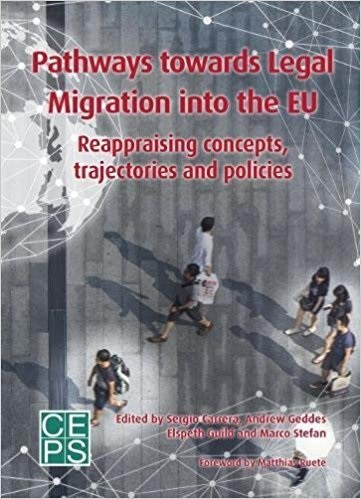Pathways towards Legal Migration into the EU - Reappraising concepts, trajectories and policies
Disponibilité: En stock
- Catégories: Asile et immigration
- Editeur: CEPS
- ISBN: 9789461386304
- Date de publication: 01/11/2017
- Reliure: Paperback
- Nombre de pages: 217
Résumé
Finding that EU migration policies are still subject to inconsistency, legal uncertainty and discriminatory treatment, scholars call for the creation of new legal pathways.
Over the past 15 years, the ‘Europeanisation’ of policies dealing with the conditions of entry and residence of third-country nationals has led to the development of a common EU acquis. Yet questions related to policy consistency, legal certainty and fair and non-discriminatory treatment in working and living standards still characterise the EU’s legal framework for cross-border mobility. This book critically explores the extent to which EU legal migration policies and their underlying working notions match the transnational mobility of individuals today. It addresses the main challenges of economic migration policies, both within the EU and in the context of EU cooperation with third countries. Special consideration is given to the compatibility of EU policies with international labour standards along with the fundamental rights and approach to fairness laid down in the EU Treaties. The contributions to this book showcase the various uses and potential of social science and humanities research in assessing, informing and shaping EU migration policies. Leading scholars and experts have brought together the latest knowledge available to reappraise the added value of the EU in this area. Their reflections and findings point to the need to develop a revised set of EU policy priorities in implementing a new generation of legal pathways for migration.
